Here are some events that happened on November 11th. It could be an event or a person that died or was born on that day
1493 Born: Paracelsus, Swiss-German physician, botanist, astrologer, and occultist (d. 1541)
Paracelsus (1493/4 – 24 September 1541), born Theophrastus von Hohenheim (full name Philippus Aureolus Theophrastus Bombastus von Hohenheim), was a Swiss physician, alchemist, and astrologer of the German Renaissance.
He was a pioneer in several aspects of the "medical revolution" of the Renaissance, emphasizing the value of observation in combination with received wisdom. He is credited as the "father of toxicology". Paracelsus also had a substantial impact as a prophet or diviner, his "Prognostications" being studied by Rosicrucians in the 1700s. Paracelsianism is the early modern medical movement inspired by the study of his works.
Paracelsus was one of the first medical professors to recognize that physicians required a solid academic knowledge in the natural sciences, especially chemistry. Paracelsus pioneered the use of chemicals and minerals in medicine. From his study of the elements, Paracelsus adopted the idea of tripartite alternatives to explain the nature of medicine, taking the place of a combustible element (sulphur), a fluid and changeable element (mercury), and a solid, permanent element (salt). The first mention of the mercury-sulphur-salt model was in the Opus paramirum dating to about 1530.
Paracelsus is frequently credited with reintroducing opium to Western Europe during the German Renaissance. He extolled the benefits of opium, and of a pill he called laudanum, which has frequently been asserted by others to have been an opium tincture. Paracelsus did not leave a complete recipe, and the known ingredients differ considerably from 17th-century laudanum.
Paracelsus invented, or at least named a sort of liniment, opodeldoc, a mixture of soap in alcohol, to which camphor and sometimes a number of herbal essences, most notably wormwood, were added. Paracelsus's recipe forms the basis for most later versions of liniment.
Stamps from Austria and Germany depicting Paracelsus
1675 – Gottfried Leibniz demonstrates integral calculus for the first time to find the area under the graph of y = ƒ(x).
Gottfried Wilhelm (von) Leibniz (sometimes spelled Leibnitz) or French: Godefroi Guillaume Leibnitz (1 July 1646 – 14 November 1716) was a prominent German (of Slavic origin) polymath and philosopher in the history of mathematics and the history of philosophy. His most notable accomplishment was conceiving the ideas of differential and integral calculus, independently of Isaac Newton's contemporaneous developments. Mathematical works have always favored Leibniz's notation as the conventional expression of calculus, while Newton's notation became unused. It was only in the 20th century that Leibniz's law of continuity and transcendental law of homogeneity found mathematical implementation (by means of non-standard analysis). He became one of the most prolific inventors in the field of mechanical calculators. While working on adding automatic multiplication and division to Pascal's calculator, he was the first to describe a pinwheel calculator in 1685 and invented the Leibniz wheel, used in the arithmometer, the first mass-produced mechanical calculator. He also refined the binary number system, which is the foundation of all digital computers.
Here are some stamps from Germany and Ukraine depicting Leibniz
1855 Died: Søren Kierkegaard, Danish philosopher and author (b. 1813)
Søren Aabye Kierkegaard (5 May 1813 – 11 November 1855) was a Danish philosopher, theologian, poet, social critic and religious author who is widely considered to be the first existentialist philosopher. He wrote critical texts on organized religion, Christendom, morality, ethics, psychology, and the philosophy of religion, displaying a fondness for metaphor, irony and parables. Much of his philosophical work deals with the issues of how one lives as a "single individual", giving priority to concrete human reality over abstract thinking and highlighting the importance of personal choice and commitment. He was against literary critics who defined idealist intellectuals and philosophers of his time, and thought that Swedenborg, Hegel, Fichte, Schelling, Schlegel and Hans Christian Andersen were all "understood" far too quickly by "scholars".
Kierkegaard's theological work focuses on Christian ethics, the institution of the Church, the differences between purely objective proofs of Christianity, the infinite qualitative distinction between man and God, and the individual's subjective relationship to the God-Man Jesus the Christ, which came through faith. Much of his work deals with Christian love. He was extremely critical of the practice of Christianity as a state religion, primarily that of the Church of Denmark. His psychological work explored the emotions and feelings of individuals when faced with life choices.
Kierkegaard's early work was written under the various pseudonyms to present distinctive viewpoints that interact in complex dialogue. He explored particularly complex problems from different viewpoints, each under a different pseudonym. He wrote many Upbuilding Discourses under his own name and dedicated them to the "single individual" who might want to discover the meaning of his works. Notably, he wrote: "Science and scholarship want to teach that becoming objective is the way. Christianity teaches that the way is to become subjective, to become a subject." While scientists can learn about the world by observation, Kierkegaard emphatically denied that observation alone could reveal the inner workings of the world of the spirit.
Some of Kierkegaard's key ideas include the concept of "subjective and objective truths", the knight of faith, the recollection and repetition dichotomy, angst, the infinite qualitative distinction, faith as a passion, and the three stages on life's way. Kierkegaard wrote in Danish and the reception of his work was initially limited to Scandinavia, but by the turn of the 20th century his writings were translated into French, German, and other major European languages. By the mid-20th century, his thought exerted a substantial influence on philosophy, theology, and Western culture.
Stamp issued by the Faeroe Islands depicting Kierkegaard
1861 Died: Pedro V of Portugal (b. 1837)
Peter V (Portuguese: Pedro V Portuguese pronunciation: 16 September 1837 – 11 November 1861), nicknamed "the Hopeful" (Portuguese: o Esperançoso), was King of Portugal from 1853 to 1861.
As the eldest son of Queen Maria II and King Ferdinand II, Peter was a member of the House of Braganza. As heir apparent to the throne he was styled Prince Royal (Portuguese: Príncipe Real), and was also the 19th Duke of Braganza (Duque de Bragança).
Peter was a conscientious and hard-working monarch who, under the guidance of his father, sought radical modernisation of the Portuguese state and infrastructure. Under his reign, roads, telegraphs, and railways were constructed and improvements in public health advanced. His popularity increased when, during the cholera outbreak of 1853–1856, he visited hospitals handing out gifts and comforting the sick.
Pedro V, along with his brothers Fernando and João and other royal family members, succumbed to typhoid fever or cholera in 1861.
Portuguese stamps depicting Pedro V
Victor Emmanuel III (Vittorio Emanuele Ferdinando Maria Gennaro di Savoia; Italian: Vittorio Emanuele III, Albanian: Viktor Emanueli III; 11 November 1869 – 28 December 1947) was the King of Italy from 29 July 1900 until his abdication on 9 May 1946. In addition, he held the thrones of Ethiopia and Albania as Emperor of Ethiopia (1936–1943) and King of the Albanians (1939–1943). During his reign of nearly 46 years, which began after the assassination of his father Umberto I, the Kingdom of Italy became involved in two world wars. His reign also encompassed the birth, rise, and fall of Italian Fascism and its regime.
During World War I, Victor Emmanuel III accepted the resignation of Prime Minister Paolo Boselli and named Vittorio Emanuele Orlando (the premier of victory) in his place. Following the March on Rome, he appointed Benito Mussolini as Prime Minister and later deposed him in 1943 during World War II.
Victor Emmanuel abdicated his throne in 1946 in favour of his son Umberto II, hoping to strengthen support for the monarchy against an ultimately successful referendum to abolish it. He then went into exile to Alexandria, Egypt, where he died and was buried the following year in Saint Catherines's Cathedral of Alexandria. His remains were returned in 2017 to rest in Italy, following an agreement between Italian President Sergio Mattarella and Egyptian President Abdel Fattah el-Sisi.
He was also called by the Italians Sciaboletta ("little saber") due to his height of 1.53 m (5 ft 0 in), or Il Re soldato (The Soldier King) for having led his country during both world wars.
Stamps from Italy depicting Victor Emmanuel III


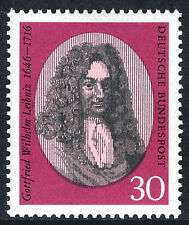

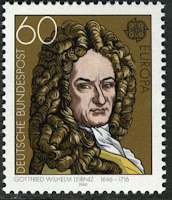



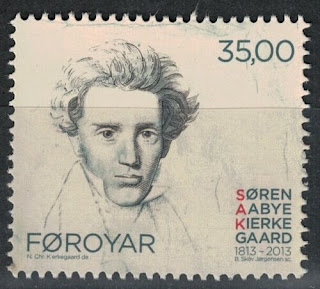


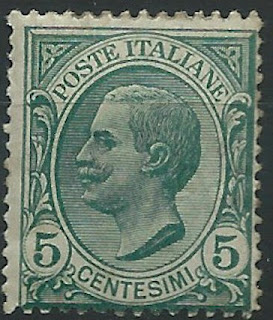
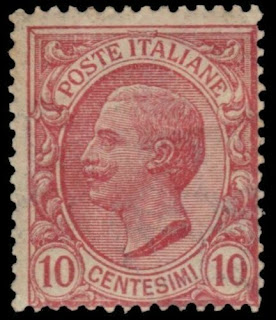



No comments:
Post a Comment